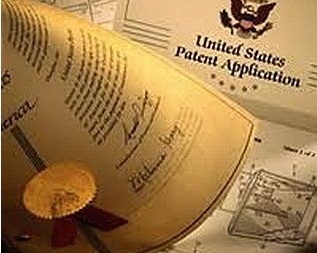Google has revealed the exact value of the patent treasure trove it acquired when it agreed to purchase Motorola Mobility.
Google revealed in August 2011 that it was buying Motorola for more than $12 billion (£8bn), and the move surprised many financial and IT analysts as they didn’t know what the search giant was planning to gain from the purchase.
Patent Protection
Less than a month later, though, Google CEO Larry Page explained the strategy in a corporate blog post: “Our acquisition of Motorola will increase competition by strengthening Google’s patent portfolio, which will enable us to better protect Android from anti-competitive threats from Microsoft, Apple and other companies,” Page wrote.
Now the company has disclosed some more clues about the Motorola patent portfolio in its latest quarterly financial filing with the US Securities and Exchange Commission – the Motorola patents were worth about $5.5 billion (£3.5bn) of the $12.4 billion (£8bn) that Google paid for the company.
 “On 22 May, 2012, we completed our acquisition of Motorola, a provider of innovative technologies, products and services that enable a range of mobile and wireline digital communication, information and entertainment experiences,” Google reported in the SEC filing. “The acquisition is expected to protect and advance our Android ecosystem and enhance competition in mobile computing.”
“On 22 May, 2012, we completed our acquisition of Motorola, a provider of innovative technologies, products and services that enable a range of mobile and wireline digital communication, information and entertainment experiences,” Google reported in the SEC filing. “The acquisition is expected to protect and advance our Android ecosystem and enhance competition in mobile computing.”
Financial Impact
The details of the Motorola patent portfolio’s value to Google comes less than a week after Google reported its second quarter financials – its first report since the Motorola acquisition.
For the second financial quarter of 2012 that ended 20 June, Google posted second-quarter revenue of $12.21 billion (£7.9bn), which is a 35 percent increase from the $9.03 billion (£5.8bn) the search company earned during the second quarter of 2011.
“Google stand-alone had a strong quarter with 21 percent year-on-year revenue growth, and we launched a bunch of exciting new products at I/O – in particular, the Nexus 7 tablet, which has received rave reviews,” Page wrote in a statement for the earnings call. “This quarter is also special because Motorola is now part of the Google family, and we’re excited about the potential to build great devices for users.”
The $12.21 billion second-quarter revenue was up 15 percent from the first quarter of the year, when Google reported $10.65 billion (£6.9bn) in revenue, according to the company. GAAP net income reported in the second quarter of 2012 was $2.79 billion (£1.8bn), compared with $2.51 billion (£1.6bn) in the second quarter of 2011.
Since Google’s acquisition of Motorola was completed in May, the effects of that purchase are not yet reflected in a full quarter.
So far, however, revenue from the Motorola hardware and other product lines totalled $1.25 billion/£807m ($843 million/£544m from the mobile segment and $407 million/£263m from the home segment), or 10 percent of Google’s consolidated revenue in the second quarter of 2012, the company reported.
The recent financial news from Google comes at a busy time for the company as it also works to resolve antitrust concerns in Europe. According to a 24 July development, Google is apparently getting close to a settlement deal with the European Union to resolve antitrust issues that would avoid formal charges against the search company.
That progress for the company comes after months of ongoing negotiations between Google and the EU.
The exact terms of that deal have not yet been announced publicly and the arrangement has not yet been finalized, but the main sticking points that have been raised in recent months – how to include mobile search services and Android – are being addressed, according to reports.
Negotiations for a settlement deal have been in the works for more than a month. Last week it was reported that Google’s Android technologies would have to be included as part of any agreement for any deal to pass muster with the EU.
Do you know all of Google’s secrets? Find out with our quiz!





